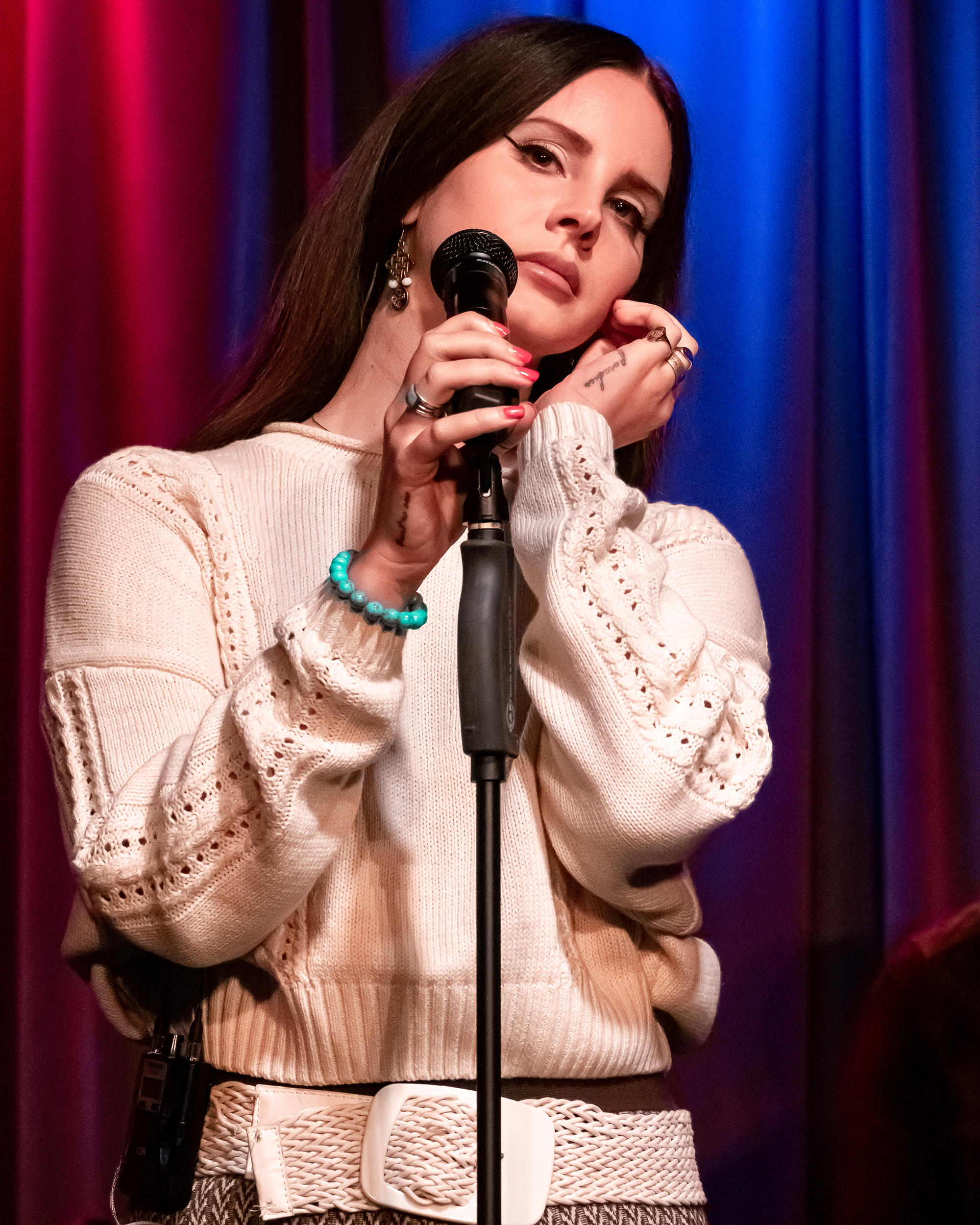On 3rd November, the New Note Orchestra will take part in a concert at the Brighthelm Centre in Brighton to celebrate Music 4 Recovery day. As we get ready for the launch of Music 4 Recovery day on the 3rd of November, we look at some musicians that have experienced drug and alcohol addiction in the past, but are able to celebrate their recovery.
“That’s all drugs and alcohol do, they cut off your emotions in the end, ” – Ringo Starr, drummer with The Beatles.
The phrase sex, drugs and rock’n’roll was first printed in a 1969 Life magazine article, but the use of drugs and alcohol in the world of pop and rock music goes back much further. As soon as rock and pop musicians and singers were made into stars, then the pressures of performance and off-stage partying meant that stimulants were often close at hand. Songs have been written about everything from whisky to heroin, while musicians losing their lives to the use of alcohol and drugs has become an integral part of rock’n’roll lore.
Yet there are also stories of hope. Some of the biggest musicians in the world have faced up to their addictions and found a productive and fulfilling career in sobriety.
Elton John
 Pianist, songwriter, Elton John was one of the biggest stars of the 1970s. He first came to prominence with the international hit 1972’s Your Song, but by 1975 Elton John was heavily using cocaine and had an overdose during Elton John week in Los Angeles.
Pianist, songwriter, Elton John was one of the biggest stars of the 1970s. He first came to prominence with the international hit 1972’s Your Song, but by 1975 Elton John was heavily using cocaine and had an overdose during Elton John week in Los Angeles.
“I was incredibly confident on stage because that’s where I loved to be. But offstage, there was no balance. I was a little shy kid that went onstage. And I always said, cocaine was the drug that made me open up. I could talk to people. But then it became the drug that closed me down. So it started out by making me talk to everyone, and then ended up by me isolating myself alone with it; which is the end of the world, really,” John said in a 2012 interview with NPR.
Throughout the 70s and 80s, the singer continued to use drugs and alcohol, having frequent health problems as well as suffering from bulimia. Elton John finally got sober in the 1990s after a meeting Ryan White, the American teenage haemophiliac who contracted HIV through a contaminated blood transfusion.
“Ryan was the spark that helped me to recover from my addictions and start the AIDS foundation. Within six months of White’s death I became sober, and clean. If I hadn’t finally taken the big step of asking for help 30 years ago, I’d be dead,” he wrote in 2020.
Now more than 30s sober, Elton John continues to write and perform. He has also helped a number of other big-name stars that have had addiction problems, such as his close friend US rapper Eminem.
“Make recovery your absolute priority over everything else. Don’t go back to work too soon. Take the time you need to learn and heal. I don’t think I would still be sober today if I hadn’t taken that whole year off and thrown myself into my program of recovery,” he told Variety magazine in 2019.
Lana Del Rey

US singer and songwriter Lana Del Rey is known for her dark melancholy Americana and lyrics that cover heartbreak, death and addiction. Born and raised in the state of New York,
Del Rey drank from an early age. When she was 15 her parents sent to boarding school in Connecticut to get sober from alcohol, but it was here that she discovered drugs. “Like, at first it’s fine and you think you have a dark side – it’s exciting – and then you realise the dark side wins every time if you decide to indulge in it,” she told GQ magazine in 2012.
She eventually gave up drinking in 2004, and she started working for an outreach program for addicts and alcoholics. She has continued this work into adulthood. Though sober she uses the experiences of her past in the songs that she writes. “When I write about the thing that I’ve lost I feel like I’m writing about alcohol because that was the first love of my life,” she told GQ.
Stevie Nicks
 In 1977, Fleetwood Mac released Rumours to worldwide critical acclaim. The album sold 10 million copies in its first month alone, and went on to be one of the biggest selling albums of all time. However, behind the scenes the recording was punctuated by partying, disastrous interpersonal relationships and heavy drug use. With heavy touring schedules compounded by frequent stage fright, iconic lead singer Stevie Nicks has opened out to being addicted to cocaine and other substances, and how they impacted her life and health. At one two-day party prior to the Rumour world tour, Nicks left her contact lenses in for almost 48 hours and almost blinded herself.
In 1977, Fleetwood Mac released Rumours to worldwide critical acclaim. The album sold 10 million copies in its first month alone, and went on to be one of the biggest selling albums of all time. However, behind the scenes the recording was punctuated by partying, disastrous interpersonal relationships and heavy drug use. With heavy touring schedules compounded by frequent stage fright, iconic lead singer Stevie Nicks has opened out to being addicted to cocaine and other substances, and how they impacted her life and health. At one two-day party prior to the Rumour world tour, Nicks left her contact lenses in for almost 48 hours and almost blinded herself.
“Cocaine was one of the great lies my generation fell for—and we fell hard. They told us that cocaine was a drug without consequence, but that turned out to be a very big and wildly destructive lie. I know because that particular lie cost me at least a million dollars and put a hole in my nose that could have killed me,” she wrote in 2020.
In 1986, after pressure from her bandmates, Nicks was checked into the Betty Ford clinic, where she kicked her cocaine addiction, but became reliant on prescription drugs. In the early 1990s, she spent time in further detox to withdraw from Klonopin. Since then however she has embraced sobriety.
“I survived me. I survived my cocaine. I survived by myself. I checked myself into rehab. Nobody did that for me. I did it and that’s like with my whole life,” she told Far Out Magazine.
Stevie Nicks has continued to regularly write and perform, both as a celebrated solo artist and with Fleetwood Mac.
Mary J Blige
Mary J Blige has recorded 15 albums since 1992, and eight of them have been international hits, going platinum. She has also been open and honest about her addictions. She first started drinking and using drugs as a teenager, later saying that she relied on them to help her deal with being sexually assaulted as a child.
She first started drinking and using drugs as a teenager, later saying that she relied on them to help her deal with being sexually assaulted as a child.
“We numb ourselves with drugs and alcohol and people and shopping and shit, to cover up what’s really going on inside,” she told Self.com in 2019. “You’re taking drugs so you can go out and feel courageous, or go out and feel beautiful or whatever. You’re doing it to cover up something.”
After finding success in her early 20s, she carried on using substances to cope with sudden fame. In 2012, Blige’s friend and musical icon Whitney Houston died due to the overuse of drugs, and Blige realised that she had to change.
“Whitney Houston’s death really affected me. Her death is another reason I stopped. I really do think I’m done. I looked at how that woman could not perform anymore.”
Blige credits her sobriety to her faith. “I don’t know why. But I didn’t want to go to rehab. I believe that anything man himself can do for me, God can do for me in a greater way. I decided to pray and to seek God on my own. I just stayed in The Word. And it worked,” she told USA today in 2013.
Ringo Starr
 They don’t come much bigger than Ringo Starr, the charismatic drummer from one of the biggest bands in the world. From the early days of using amphetamines to play all night shows in Hamburg, to the counterculture drug using of pot and LCD of the the mid-60s, it comes as no surprise that in his career, Starr has used drugs and drink.
They don’t come much bigger than Ringo Starr, the charismatic drummer from one of the biggest bands in the world. From the early days of using amphetamines to play all night shows in Hamburg, to the counterculture drug using of pot and LCD of the the mid-60s, it comes as no surprise that in his career, Starr has used drugs and drink.
Following the breakup of the Beatles, Starr embarked on a solo music and film career, but his partying got harder. With a series of unfinished projects, and films that were critically panned, Starr became famous as a jet setter drinking heavily and using cocaine. In 1981, Starr married famous actress Barbara Bach, and the pair went on a drink and drug binge that lasted years.
“We used to go on long plane journeys, rent huge villas, stock up the bars, hide and get deranged,” he said in a forward to Beatle’s press agent Derek Tailor’s 1992 book Getting Sober.
“It got progressively worse, and the blackouts got worse, and I didn’t know where I’d been, what I’d done,” he said. “I knew I had the problem for years. But it plays tricks with your head. Very cunning and baffling is alcohol.”
Bach and Starr both checked into a rehab centre in 1988, and in 1989 Starr started the All-Starr Band, a supergroup of ever changing musicians that still tours to this day. He has also played an active part in maintaining the Beatles’ legacy, appearing in the 1990s documentary Anthology series and acting as consultant for various Beatle-related releases.
Starr also plays an active part in the recovery community, speaking at the US National Council on Alcoholism and Drug Dependence and Facing Addiction gala event in 2018. He has also helped other musicians on their own journey of sobriety.
“I used to have to sit on the drum seat and just hold still. Barbara couldn’t talk to me. People around me couldn’t talk to me. I’m just holding on because all my sinews and veins and brains were like, Let’s get fucked up,” Starr told Rolling Stone after the gala event, in reference to his early days as a sober musician.
“..But I didn’t. That’s how it works. If sobriety is something you want, you can get it. Here it is. Come and get it.”
Music 4 Recovery
There are many sober musicians. From big stars to small independent artists, amateur artists and even people picking up a musical instrument for the first time. Though the music industry is synonymous with drugs, alcohol and addiction, music itself can be about serenity, acceptance and community. Getting over the hurdles of early sobriety can be difficult for musicians, especially those who have been using substances to deal with social anxiety and performance anxiety. However, a healthy sobriety can mean more energy, focus and commitment. It can help with creativity, and improving skills.
With Music 4 Recovery day, the New Note Orchestra wants to celebrate those of us who are making music in sobriety. We also want to remove the stigma that those who have experienced addiction face and promote the use of music making in sobriety.
This is the first Music 4 Recovery day, and New Note will be performing with The Qwarks, and artists from the Not Saints label at the Brighthelm Centre in Brighton. The event is on Thursday 3 November and will start at 7.30 pm.
There is also a website www.music4recovery.co.uk and we encourage other musicians in recovery to get in touch so we can spread the word. If recovery works for some of the biggest musicians in the world, it can work for us.

